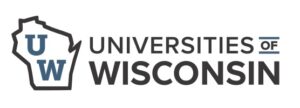 The Universities of Wisconsin Board of Regents is meeting Thursday and Friday, February 6 and 7 Union South on the UW-Madison campus. Registration for the Zoom link to watch the open portions of the meeting here.
The Universities of Wisconsin Board of Regents is meeting Thursday and Friday, February 6 and 7 Union South on the UW-Madison campus. Registration for the Zoom link to watch the open portions of the meeting here.
UW-Madison hosted a welcome reception on Wednesday evening and offered Regents the opportunity to tour Morgridge Hall, the new School of Computer, Data and Information Sciences building will have presentations throughout the individual meetings.
The Regents met in committee on Thursday morning.
- The Audit Committee heard several updates on recent audits and annual reports from the UW-Madison Athletics Board and the Universities of Wisconsin Office of Information Security.
- The Capital Planning and Budget Committee considered approval of the sale of a parcel of land in Door County owned by UW-Green Bay and maintenance repair projects at UW-Madison and UW-Stevens Point. UW-Madison Associate Vice Chancellor for Facilities, Planning, and Management Cindy Torstveit also gave a presentation on UW-Madison built environment and its plans for the future.
- The Business and Finance Committee considered a pair of contractual agreements and heard several reports, including one from UW-Madison Vice Chancellor for Finance and Administration Rob Cramer and Associate Vice Chancellor for Finance David Murphy on the financial wellbeing of UW-Madison and one providing an overview of systemwide student affordability.
- The Education Committee considered approval of seven new degree programs, including three at UW-Madison (an MFA in dance, a BS in Plant Science and Technology, and an MS in Learning Analytics) and heard two updates on artificial intelligence.
The Regents met in full committee Thursday afternoon and Friday morning. On Thursday, Regents heard updates from Universities of Wisconsin President Jay Rothman and Regent President Amy Blumenfeld Bogost, and a presentation on UW-Madison from Chancellor Jennifer Mnookin. The Regents then moved to closed session to discuss chancellor evaluations and possible/pending litigation relating to former UW-La Crosse Chancellor Joe Gow.
On Friday, the Regents will consider Thursday’s committee action, hear a panel discussion on innovation and entrepreneurial excellence, and present theRegents Business Partnership Award to UW-Madison and American Family Insurance.

